The first official media briefing I was aware of happened on Monday evening and was published on YouTube. I kept looking for more media briefings, in the obvious places, and found nothing until I heard a remark about Archbishop Coleridge talking to the press. Eventually I looked at Facebook, and on the Plenary Council page found two official media briefings published via Facebook live. It makes no sense to me either. But both Tuesday’s and Wednesday’s media briefings were worth viewing, which I did back to back last night.
One of them mentioned the wording of the welcome to country from Tuesday morning, which was particularly good:
“We pay respect to elders past, present and their youth, as they hold the dreams of the future. I also extend that respect and acknowledgment to all of you today and the lands from which we’re all gathered, and also to your ancestors and where you’ve come from as well.”
Archbishop Coleridge re-quoted from his ACBC homily of 27 Nov 2018:
“According to the papal preacher Raniero Cantalamessa, “ordination provides the authorization to do certain things but not necessarily the authority to do them. It assures the apostolic succession but not necessarily apostolic success”. It’s the Spirit who provides the authority and the success.”
The point being that apostolic success is dependent on people with the right charisms of the Holy Spirit collaborating together on the right projects. Just because someone is ordained doesn’t mean they have charisms of preaching, pastoring and administration. Since the gifting of charisms depends on baptism (and confirmation) and not ordination, recognition of this could be the path forward for new governance models and the role of women in the church.
One of the outcomes from yesterday is an understanding that the Yes with reservations is suitable for collaborative votes, but it is not suitable for deliberative votes. Reading between the lines, one has to wonder whether all the bishops were listening when the assembly was told Yes with reservation votes would be counted as No votes. Because a special meeting of bishops was held behind closed doors, we are not privy to why some of them voted No and some of them voted Yes with reservations.
Another outcome from yesterday is that Motion 4, the one about women in the church, will be adjusted by a panel of 4, two members and two experts, and then the votes on that revised motion will be held on Friday.
Subsequently the two motions that didn’t get dealt with yesterday have to be squeezed in between today and tomorrow. But even that has necessitated a better outcome. Decisions have been made to make the time set aside for spiritual conversations shorter, more streamlined and focused on the motions; and a more iterative and real-time consultative process has been sketched out for the rest of the second assembly, with each motion taking as long as it takes to get it right – or so we hope.
In last night’s Plenary Tracker Mary Coloe had useful input. She reminded us that there are parts of discernment that happen before a decision, and there’s discernment that happens after a decision. When a decision is made and general discomfort results, like happened yesterday, then general agreement is that the wrong decision was made and a better one needs to be found. It is quite normal that sometimes discernment is clearer after a decision is made.
I feel I need to declare that many of the conclusions made by John Warhurst in his media release at 6.39pm yesterday don’t hold water; and will go through some of them in detail. I accept that it was probably written in haste, and under strong emotions, and used provocative language like ‘failure, desperately, stunning blow’ etc, and which he will likely regret writing for a long time to come.
The vote was not a failure to give unqualified recognition to women in the Church. Actually the motion was too big and too unwieldy. Even the large number of Yes with reservations votes from the non-bishops bears out that truth.
I can’t see how a rejection of contemporary values matters at all. Ditto ‘reflecting the will of the people’. We believe in a God, as James 1:17 says, with Whom there is no such thing as alteration, no shadow of a change. It is His will, and His will alone that we desire to discern and implement. Finding ways to express that holy will which enable each culture and epoch to take that holy will on board is the perennial challenge of the Church throughout the ages.
Warhurst wrote ‘the church desperately needs women in leadership roles at a time with the number of male priests is draining away’. Women in leadership roles has absolutely nothing to do with the numbers of male priests, absolutely nothing. The sense I’ve picked up from many plenary council members on this topic is that this is far more about baptismal dignity and opportunities for collaboration in decision making than anything else. That there are women in rural and remote areas who are undertaking various pastoral tasks and desire to be included in decision making regarding those under their care is the issue, not that the situation is due to absence of priests in those areas.
He also wrote the following which seems patently unfair: ‘But it is the refusal of many bishops to consider discussing with women the creation of women deacons – should Pope Francis authorise such a ministry – that is so disheartening’. That this part of the motion is even on the table, approved by both steering committee and drafting committee for deliberation, and not expunged after amendments to the draft motions were sought is prima facie evidence that the bishops are more than happy to discuss and debate this part of the motion.
Warhurst also frames the non-approved vote as ‘a blow to hopes raised that in the wake of the disastrous child sexual abuse royal commission that promised church reforms that would mean no more "business as usual” ’. If you think by the mere placement of women in decision making bodies the conditions for future abuse evaporate – have I got news for you! For abuse to happen, and for abuse to continue, there is a degree to which women are enablers viz young woman goes to older woman to report abuse from a significant person in the older woman’s life, and the initial and perhaps ongoing response is disbelief. It happens. Putting women in decision making positions is not going to stop abuse. Some argue that having a woman present will reduce clericalism, but we’ve all seen clericalized women, with paid professional careers in diocesan curia and similar places and their job description/allegiance is to bishop and curia, not to pew-sitters and whistle blowers.
The non-approved vote on motion 4 does not mean it will be ‘business as usual’ after the second assembly ends. That’s grossly unfair. To have even had these discussions at plenary council level and to have had broad consensus, as evidenced by between half and two-thirds voting Yes at both consultative votes and deliberate votes, means that business will most definitely not be ‘as usual’. Through all the sharing and listening, as uncomfortable and intense as it has sometimes been, there has been a massive shift in collective thinking. How that works itself out in practice – it’s too soon to tell – but to deny that it has happened is unjust.
Compared to previous days, online commentary has been abundant. Whether that’s because of today’s controversies or because it has taken this long to get a sense of how the second assembly is going, or both, is up for debate. Daniel Ang and Philippa Martyr have made excellent written contributions to the wider discussion, and I’ll now present some of them, two from each, albeit they are paraphrased and edited.
Daniel Ang. 6 July. Edited.
Tensions within the Council are not only the result of issues with the process of the Council itself but also with the distinct ecclesiological imaginations at play among members - with at least two primary dialects evident on the Council floor. One dialect focusses largely on the outward organisation or ‘form’ of the Church and the re-distribution of its goods. The other sets its focus upon the inner life of faith, on the common need for conversion and the call to evangelisation.
History has shown us that when the organisation and practical actions of ecclesial bodies lose contact with the Catholic tradition, its teachings and sacramental life, they not only diminish but ultimately disintegrate.
Philippa Martyr. 7 July. Paraphrased and edited.
As a woman with work and study commitments, with care commitments to elderly parents and to a teenager, it wasn’t possible for me to become a Plenary Council member because I didn’t have months to spend with ‘gifted sharers of their personal journeys’. In the absence of ordinary people like me, a group of privileged women and their man friends have tried to impose their pet projects on the Plenary Council.
The papal commission on the diaconate has two broad options. It can uphold Vatican II’s understanding of the diaconate as part of a continuum of Holy Orders. This means it’s not open to women. Or it can go back to a more primitive understanding of the diaconate. This means uncoupling it from the priesthood altogether, and if ordained at all, ordained in a way that separates them completely from the priesthood.
Lest anyone erroneously think that deacons have any part in diocesan decision making, Bishop Mark Edwards recalled his experience of being a deacon as having no decision making input at all. A deacon’s role is to serve the Word of God, to serve the poor, and to do whatever the bishop wants them to do. It’s far from glamorous.
Bishop Edwards also shared how a brave table member was willing to call other table members to a higher understanding than the general consensus of opinion. This person shared that evangelisation, is offering someone something precious we have found, it is not focused on getting more rear ends on pews. Facilitating someone’s response to Jesus and an encounter with Him has to take primacy; whether or not that leads to them attending some kind of worship in person is up to them.
In one sense it was ‘business as usual’ on Wednesday evening at Mass. Zero mention was made of any of the tumultuous day that had been. Even though it appears to be standard operating procedure, it is flawed. It is so much better to acknowledge that there has been turmoil, to even offer the opportunity for sign of peace-like gestures of solidarity to each other, and to then invite everyone to leave their cares and concerns behind for this brief hour, and to focus together on God. Ignoring it makes it worse. Ignoring it induces anger.
I did read some commentary expositing that with the explicit mention of public juridic persons in some of the earlier motions that this effectively means that leadership of socials services, hospitals, educational institutions etc have a place at the decision making table alongside bishops, clerics and religious. That feels like a sea-change with monumental implications, although no-one would doubt that better collaboration among them would be a very good thing.
There are a few notions from last night’s plenary tracker that deserve mention:
Mary Coloe said she’d be quite happy to receive authorization to preach (she does regularly train seminarians in the arts of preaching) and sees no reason why authorization to preach cannot be separated from ordination.
Mary also spoke about the disparity of resources devoted to seminary education compared with resources devoted to non-seminary education. Studying theology at any level, if you are not a seminarian or already ordained, is a voluntary thing, depending on person’s interests, ability and the depth of his or her pockets -since it is quite expensive.
Then Genevieve shared from the heart about the many years she has served as a reader at Mass, and how demoralizing it has been to have to accept that her contributions have not been valued because she’s been seen as a lesser substitute because a male reader wasn’t available. With Pope Francis recently opening up the ministry of lector to women, this has thankfully changed. But the years of hurt remain. Been there, done that, still bear the scars. I stepped down from public proclamation of the scriptures some 20 years ago, firstly due to a perception that I was too visible for some people (when actually it was willingness and ability to step in at short notice), and secondly, because if being a lector was only officially for men, I’d better step down and hope and pray that some men stepped up. I had also noted that when a man speaks publicly the message is unimpeded. When a woman speaks publicly the message is always impeded by what she is wearing, despite her very best efforts to the contrary.
Someone has to lead and someone has to follow, otherwise unified action isn’t possible. But is leadership of the first among equals variety, which actively consults on decision making unless dire urgency makes that impractical. That’s the kind of leadership that makes marriage, parishes and dioceses work. In biblical and Christian history that kind of community leadership has been given by God to male priests and male elders. Exceptions to that rule, like Judith and Deborah, are quite rare.
Be careful what you attribute to the Holy Spirit. Was yesterday’s impasse due to the inspiration of the Holy Spirit? Or was it due to the clout of the C.C.C.G * and the emotive language they’ve been using? Or was it a bit of both? There’s been so much whipping up of emotions, and so much, ‘we want this or else’, that discussion failed at times to be collaborative and became combative. Singularly lacking has been efforts to help those with hurts and grievances to come to peace and healing through forgiving the perpetrators (real and/or perceived) for the sources of those hurts and grievances. True clarity cannot come if there are blockages to love and emotional baggage in the way. Very welcome would be any kind of prayer for healing of hurts, and any gestures of mutual reconciliation- and for first nations as much as for abuse survivors as much as for women and men who carry wounds due to sub-optimal clerical behaviour.
No decisions about us without us: that’s women, first nations, disabled, homeless, those with non-standard sexual orientations etc. Sadly that seeking of input from the people affected directly by the decisions has been rare. Witness how often we put in toilet facilities with wheelchair access and then fail to provide any ramps to help those with wheelchairs get to those toilets. This is about moving towards a collaborative model for decision making, and to an extent it is about justice. However we have to acknowledge that the decision making buck has to stop somewhere, and that’s the demanding role given by God to the clergy.
Thankfully Archbishop Coleridge gave an answer to why there isn’t a 9th part in the plenary council considerations about marriage and family. Two reasons were given: One was that compared to the other 8 topics significantly fewer responses from the listening phase had been received about marriage and family. It was also thought that considerations upon marriage and family were more appropriate at a local and diocesan level than at a national level at this time.
Stay tuned for more tomorrow.
* C.C.C.G. are the Concerned Catholics of Canberra Goulburn the organisation behind Plenary Tracker.
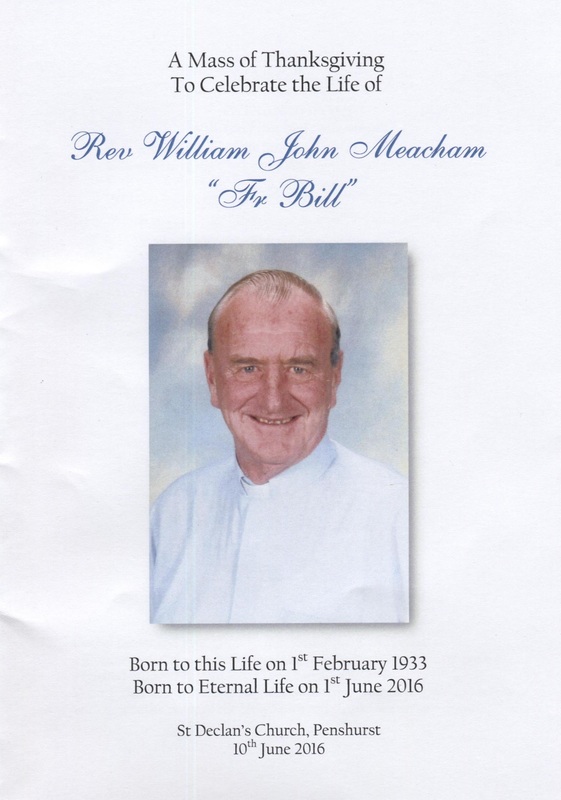
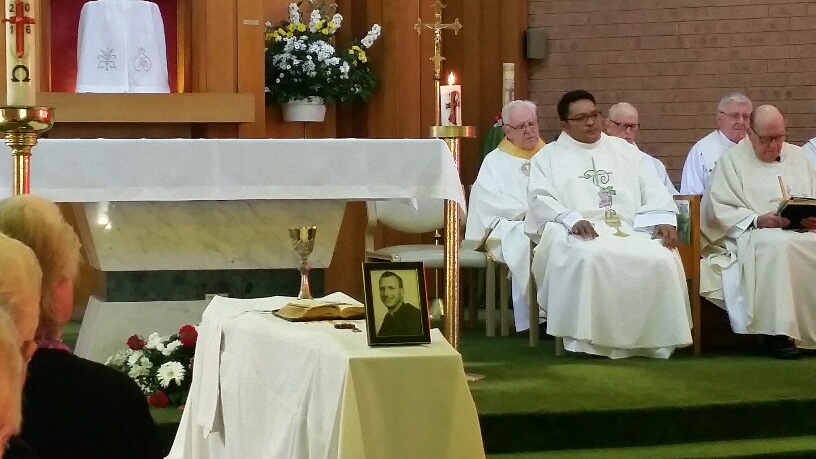
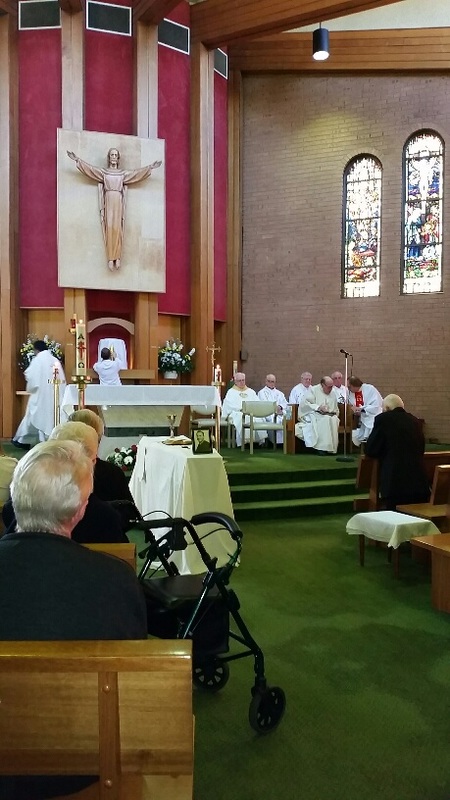
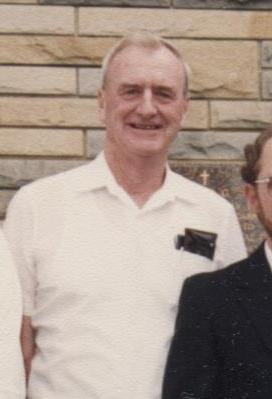
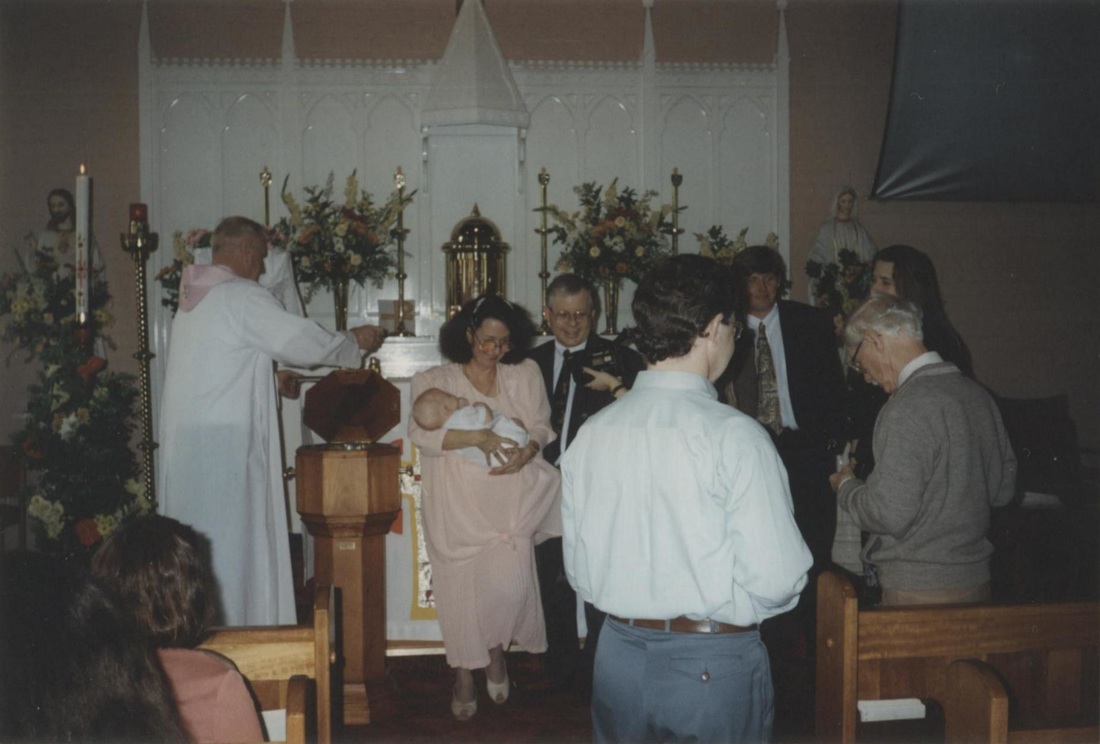
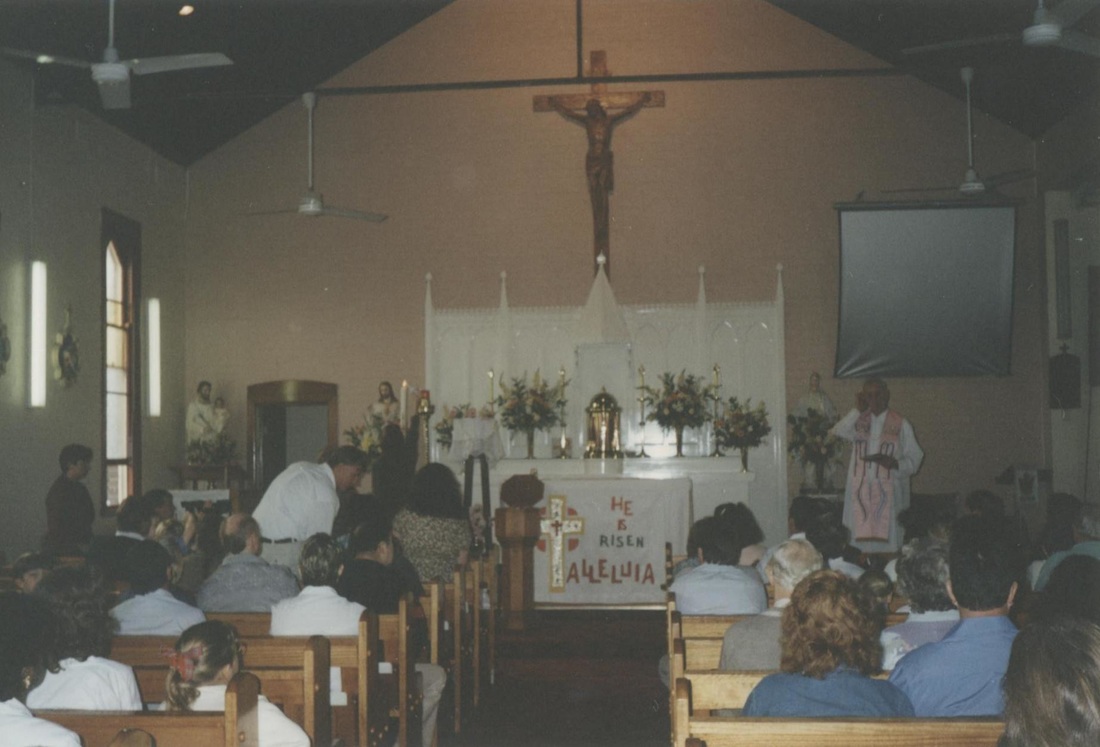

 RSS Feed
RSS Feed